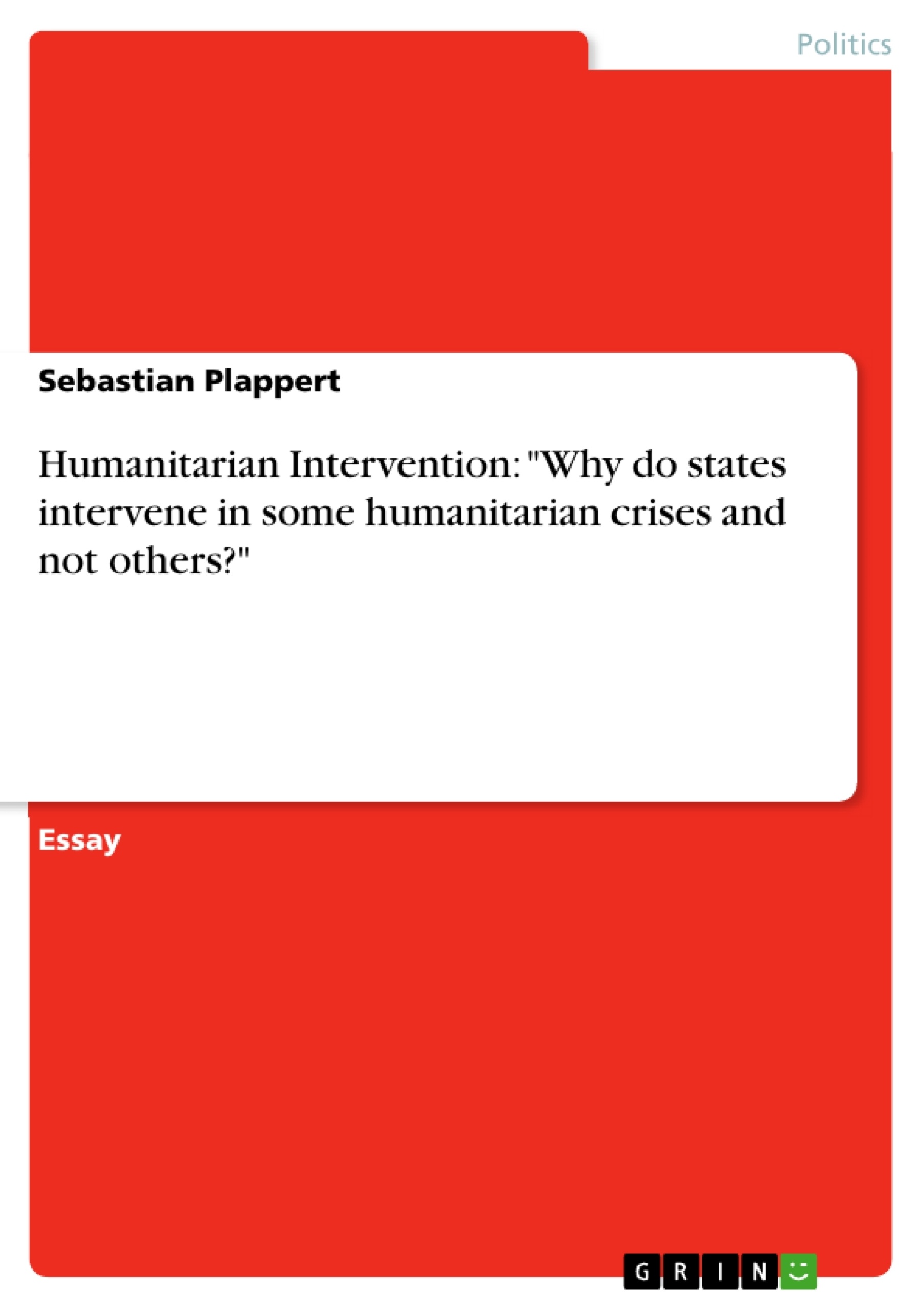This paper will argue, that the decision to intervene or not, depends on political will to do so, which itself derives from a correlation between anticipated costs and benefits. Intervention will occur only when, under consideration of all factors, the benefits outweigh the costs. After a brief review of cold war conditions, this essay will concentrate on key factors, which influence political will for humanitarian intervention in the post cold war era. All factors will be considered by supportive cases compared to Rwanda as an example for lacking political will.
Inhaltsverzeichnis (Table of Contents)
- Introduction
- The Cold War Era
- Post Cold War Conditions
- Outlook of Success
- Timeframe and Size of an Operation
- Relationship and Self-Conception of States
- Perception of a Crisis as a Humanitarian Disaster
- Conclusion
Zielsetzung und Themenschwerpunkte (Objectives and Key Themes)
This paper investigates the factors that influence states’ decisions to intervene in humanitarian crises. By examining the historical context of the Cold War and the post-Cold War era, the paper analyzes the political considerations behind humanitarian intervention. It explores the role of anticipated costs and benefits, emphasizing the crucial importance of political will in determining the outcome of these interventions.
- Political will to intervene
- Cost-benefit calculations
- Factors influencing political will: outlook of success, timeframe, state relationships, perception of crisis
- Historical context and the impact of the Cold War and its aftermath
- Examples of humanitarian interventions and their outcomes
Zusammenfassung der Kapitel (Chapter Summaries)
The paper begins by examining the historical context of humanitarian intervention during the Cold War era. It argues that geo-strategic considerations outweighed humanitarian concerns during this period, highlighting the role of power dynamics between the USSR and the USA. It analyzes specific cases, including the Vietnam intervention in Cambodia and the Tanzanian invasion of Uganda, to illustrate this point.
The paper then transitions to the post-Cold War era, where it identifies several key factors that influence states' decisions to intervene in humanitarian crises. These factors include the perceived outlook of success, the expected timeframe and size of the operation, the relationship and self-conception of states, and the perception of a crisis as a humanitarian disaster. It examines specific examples, such as the interventions in Iraq (1991) and Haiti (1994), to demonstrate the role of these factors in shaping political will.
The paper also explores the contrasting example of Rwanda, where the lack of political will, driven by a combination of factors such as the perceived high risk of failure and the negative historical experiences in Somalia, resulted in a failure to intervene. It further highlights the importance of UN authorization in legitimizing humanitarian interventions.
Schlüsselwörter (Keywords)
This paper examines the political considerations surrounding humanitarian intervention, highlighting key terms such as political will, cost-benefit analysis, outlook of success, timeframe, state relationships, perception of crisis, and the role of the United Nations in authorizing and implementing humanitarian interventions. It utilizes case studies such as the interventions in Iraq, Haiti, Rwanda, and Somalia to illustrate its findings.
- Arbeit zitieren
- MIR, MA Sebastian Plappert (Autor:in), 2007, Humanitarian Intervention: "Why do states intervene in some humanitarian crises and not others?", München, GRIN Verlag, https://www.hausarbeiten.de/document/153935


